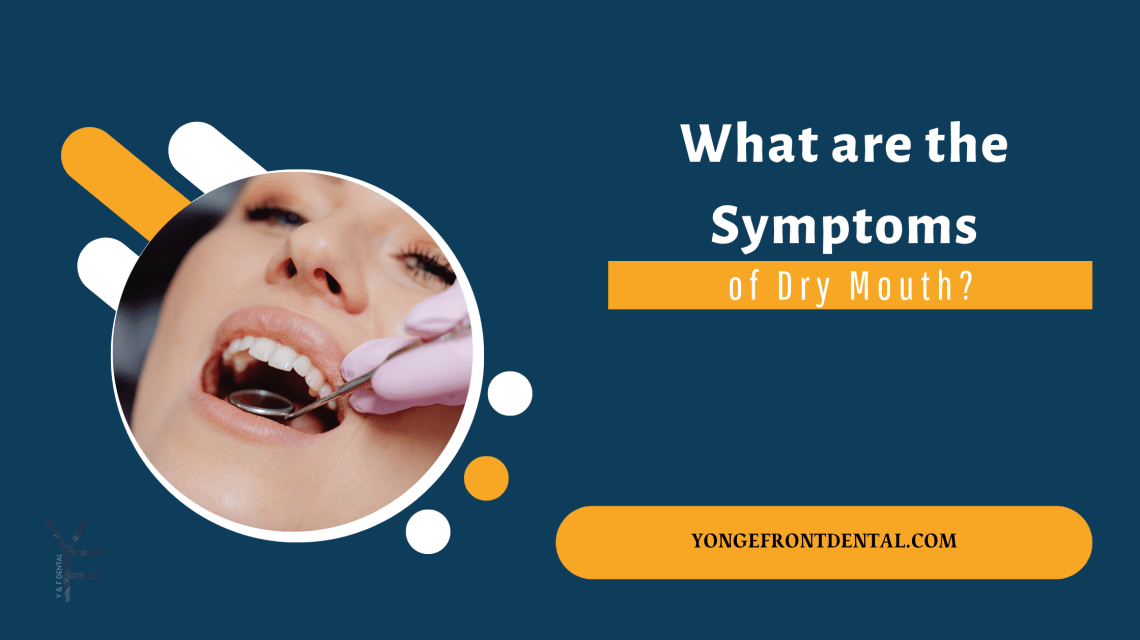Dry mouth, medically known as xerostomia, is a condition where the salivary glands fail to produce enough saliva to keep the mouth moist. While occasional dryness in the mouth is normal, persistent or chronic cases can lead to discomfort and even impact oral health.
Saliva plays a crucial role in digestion, protecting teeth from decay, and maintaining a balanced oral environment. When saliva production drops significantly, it can result in a variety of symptoms that affect speaking, eating, and overall well-being. This article explores the common symptoms of dry mouth, possible causes, and when it might be necessary to seek medical attention.
What is Dry Mouth?
Dry mouth is not a disease on its own but rather a symptom of an underlying issue. It can occur due to dehydration, medication side effects, or specific health conditions. The severity of symptoms varies from person to person, and while some may experience mild discomfort, others might face significant difficulties with daily activities like chewing and swallowing.
Chronic dry mouth can contribute to more serious complications, including gum disease, bad breath, and difficulty wearing dentures. Understanding the symptoms early can help prevent these problems and improve oral health.
Common Symptoms of Dry Mouth
The symptoms of dry mouth can range from mild to severe, affecting multiple aspects of daily life. Below are the most common signs to watch for:
1. Persistent Dryness in the Mouth
A constant feeling of dryness in the mouth is one of the most noticeable symptoms. It may feel like cotton is stuck inside the mouth, making it uncomfortable to speak or swallow.
2. Thick or Sticky Saliva
Saliva consistency often changes when production decreases. It may become thick, stringy, or sticky, making it harder to move food around while eating. This change can also affect speech clarity.
3. Frequent Thirst
People with dry mouth often experience an ongoing need to drink water, yet no amount of hydration seems to fully relieve the dryness.
4. Bad Breath (Halitosis)
Saliva helps cleanse the mouth by washing away food particles and bacteria. When saliva production is low, bacteria multiply more rapidly, leading to persistent bad breath.

5. Sore Throat and Hoarseness
A dry or scratchy throat is another symptom that can make talking and swallowing uncomfortable. Some individuals also develop a hoarse voice due to irritation in the throat.
6. Difficulty Speaking and Swallowing
Reduced saliva can make it harder to speak smoothly, especially after long conversations. Similarly, swallowing may feel more difficult as the throat lacks necessary lubrication.
7. A Burning Sensation in the Mouth
Some people experience a burning or tingling feeling on their tongue or other areas of the mouth. This can be particularly irritating and may worsen over time.
8. Dry or Cracked Lips
Lack of moisture often leads to dry, chapped lips. Cracks may develop in the corners of the mouth, making smiling or eating painful.
9. Altered Taste Perception
Many individuals with dry mouth notice changes in their ability to taste food. Some report a metallic or unpleasant taste, while others struggle to detect flavors they once enjoyed.
10. Increased Risk of Cavities and Gum Disease
Saliva plays a key role in neutralizing acids and preventing bacteria buildup. Without adequate saliva, the risk of cavities, gum inflammation, and oral infections rises significantly.

What Causes Dry Mouth?
Several factors contribute to decreased saliva production. While some causes are temporary and easily managed, others may require medical intervention.
1. Dehydration
Not drinking enough fluids throughout the day can result in temporary dry mouth. Excessive sweating, fever, or prolonged exposure to heat can also contribute to dehydration.
2. Side Effects of Medication
Many prescription and over-the-counter drugs list dry mouth as a side effect. Common culprits include:
- Antidepressants
- Antihistamines
- Blood pressure medications
- Decongestants
- Pain relievers
3. Aging
Saliva production naturally decreases with age. Seniors are more likely to experience dry mouth due to a combination of medication use and underlying health conditions.
4. Medical Conditions
Certain illnesses can impact salivary gland function, including:
- Diabetes
- Sjögren’s syndrome
- Parkinson’s disease
- Stroke-related nerve damage
5. Smoking and Alcohol Use
Tobacco and alcohol both contribute to dry mouth by reducing saliva flow. Smoking also increases the risk of gum disease and other oral health problems.

When Should You See a Doctor?
Occasional dry mouth can usually be managed with simple adjustments, but chronic cases may require medical attention. Seek professional help if you experience:
- Persistent symptoms lasting more than a few weeks
- Difficulty swallowing or speaking due to dryness
- A burning sensation that does not improve
- Recurrent mouth sores or infections
- Increased dental problems like cavities and gum disease
A healthcare provider can identify the underlying cause and suggest appropriate treatments, which may include medication adjustments, saliva substitutes, or specialized therapies.
How to Relieve Dry Mouth?
While treatment depends on the underlying cause, some strategies can provide relief:
- Stay Hydrated– Drinking small sips of water throughout the day helps maintain moisture levels.
- Chew Sugar-Free Gum– Stimulating saliva production can ease discomfort.
- Use Over-the-Counter Moisturizers– Saliva substitutes and mouth rinses can provide temporary relief.
- Limit Caffeine and Alcohol– Both substances contribute to dehydration.
- Avoid Tobacco– Smoking worsens dry mouth symptoms and oral health issues.
- Practice Good Oral Hygiene– Brushing and flossing regularly helps prevent complications.
If symptoms persist despite these measures, professional guidance is recommended.

Final Thoughts
Recognizing the symptoms of dry mouth is essential for maintaining good oral and overall health. While occasional dryness is not usually a cause for concern, chronic cases can interfere with daily life and lead to serious dental issues. Understanding the common signs, possible causes, and effective management strategies can help prevent complications and improve comfort.
If you or someone you know experiences persistent dry mouth, consulting a dentist or healthcare provider is the best way to determine the right course of action. Taking proactive steps today can ensure better oral health and long-term well-being.


